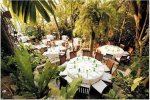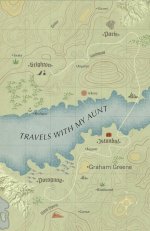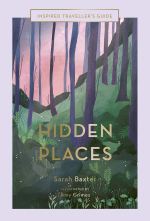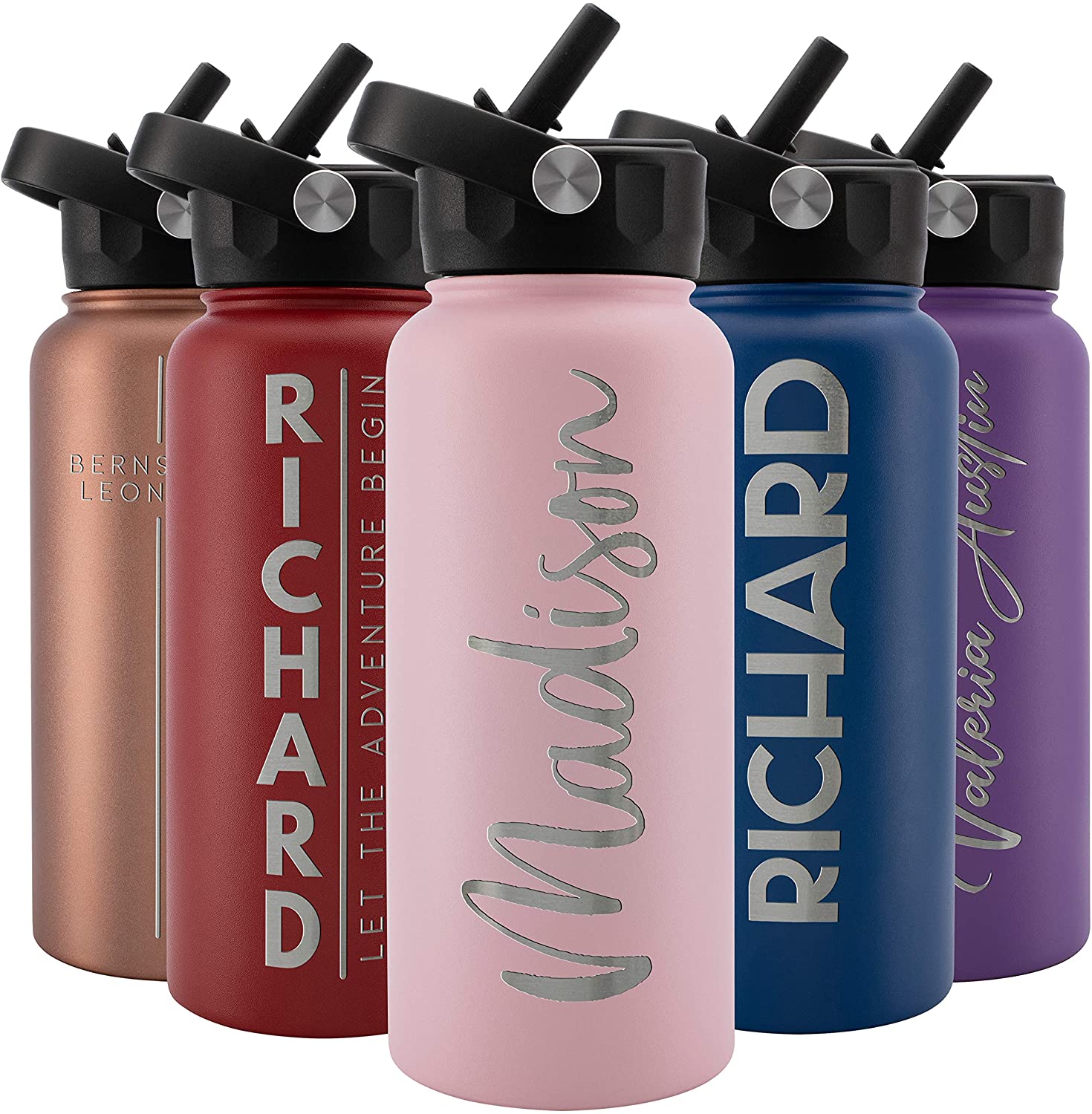Kakadu National Park
Australia
A camping trip in Kakadu National Park is more comfortable than you might think!
At the top end of the Northern Territory, Australia, 200 kilometers east of Darwin, is Kakadu National Park, Australia’s largest National Park. More than one-third of Australia’s bird species plus ferocious crocodiles, kangaroos, wallabies, fish and dangerous snakes live here.
This is another one of those places the then-husband saw on the National Geographic channel and decided we needed to see.
Kakadu National Park, Australia
The real camping story
Luckily AAT King’s Adventure Tours made camping out in Kakadu National Park a relatively comfortable experience.
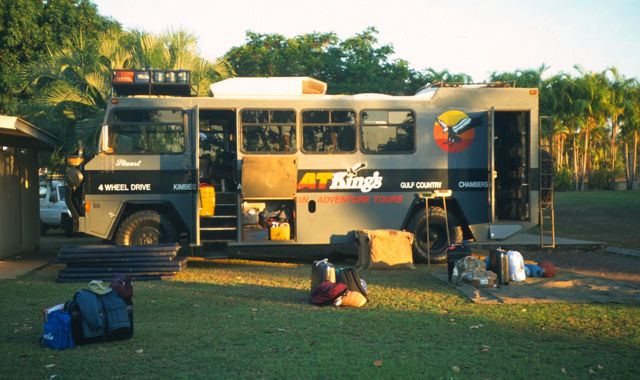 Camping in Kakadu in a Mercedes-Benz RV
Camping in Kakadu in a Mercedes-Benz RVWe traveled in a self-contained, Mercedes-Benz military-type RV, custom-designed for this kind of adventure. One third of the back end stored tents, tools, sleeping bags, sleeping mats, luggage, food and water.
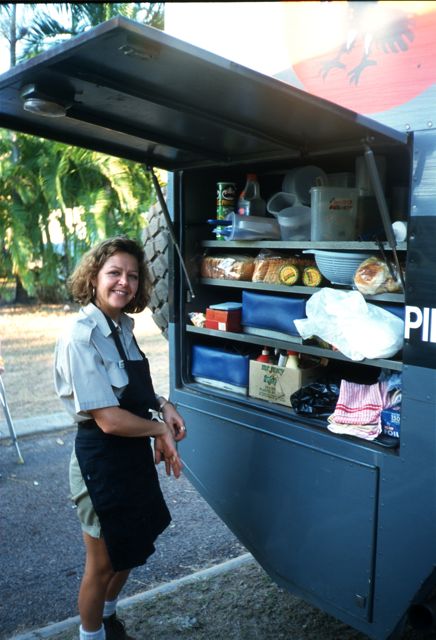
One side of the vehicle flipped down to become a cooking area for meal preparations.
Our guide, Steve, told us they’d named it, “Huey.”
You could tell we were married because every evening we were the last to have our tent pitched, while we “discussed” which peg went where, which tool did what, and the proper way to erect the tent.
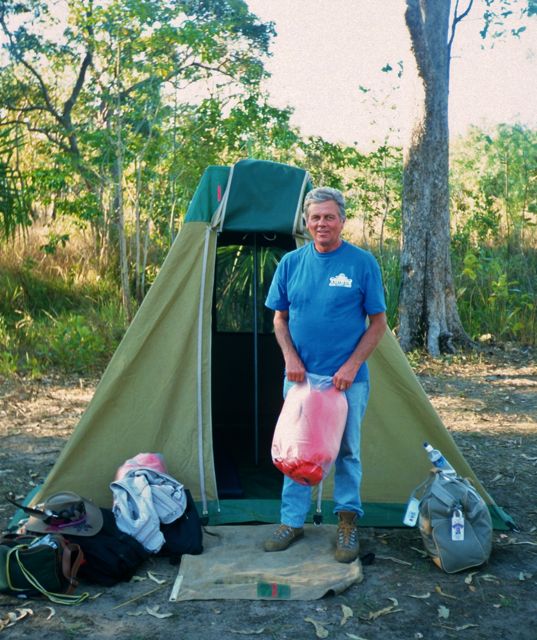 Small tent in Kakadu
Small tent in KakaduI was grateful that the tents had sealed floors, because Australia is known for having lots of deadly spiders and snakes.
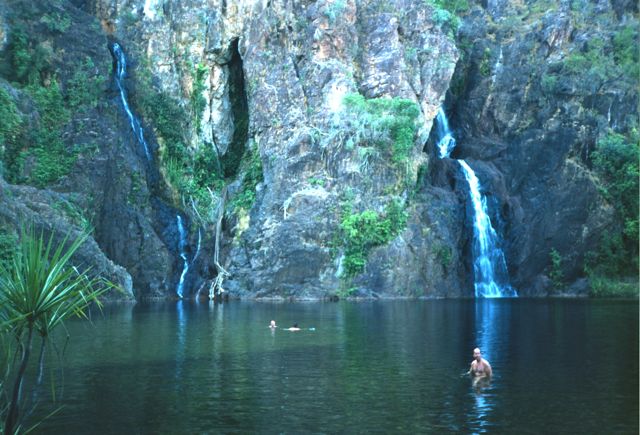
Kakadu National Park
One of our first stops was to swim at Wangi Falls, where parts of the movie, “Crocodile Dundee” were filmed.
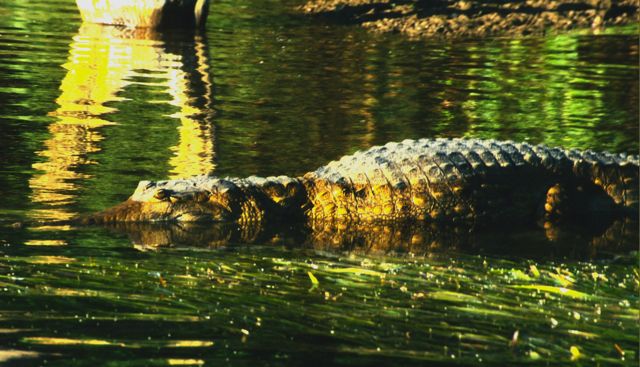 A croc!
A croc!Everywhere there is water we see BIG crocodiles. Interestingly, one of the pontoon cruises we took was on a waterway called the East Alligator River.
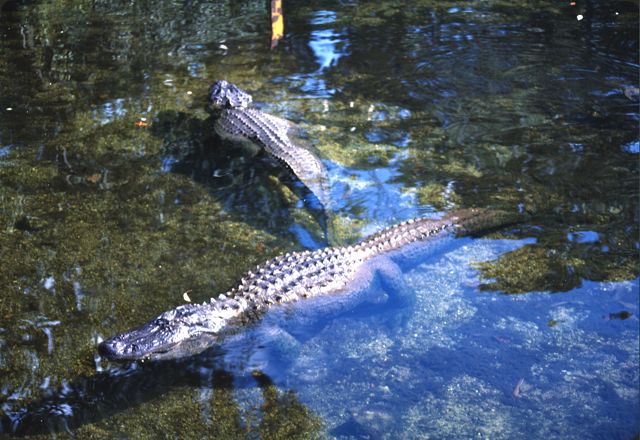
Every day was a new adventure in this vast (20,000 square kilometers) National Park (also called Arnem Land) full of rivers, plains, wetlands and escarpments abundant with wildlife.
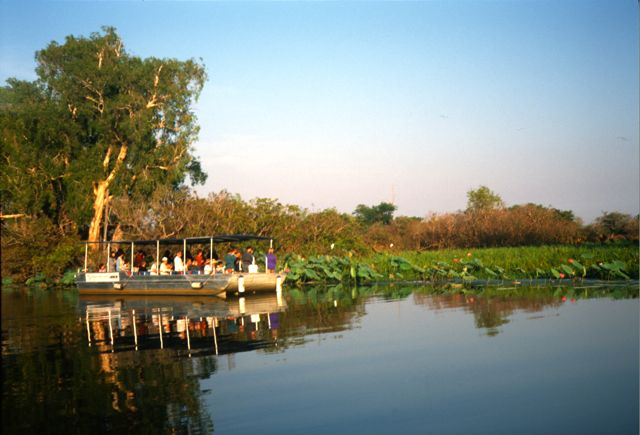 In a covered pontoon boat we explored the Yellow Water Billabong
In a covered pontoon boat we explored the Yellow Water BillabongA billabong is a body of water - not always small - that appears in a a creek bed or low area only during the rainy season; as floodwaters dry up seasonally so usually does a billabong. The word originated in a native Australian language from the words billa for river and bong for dead.
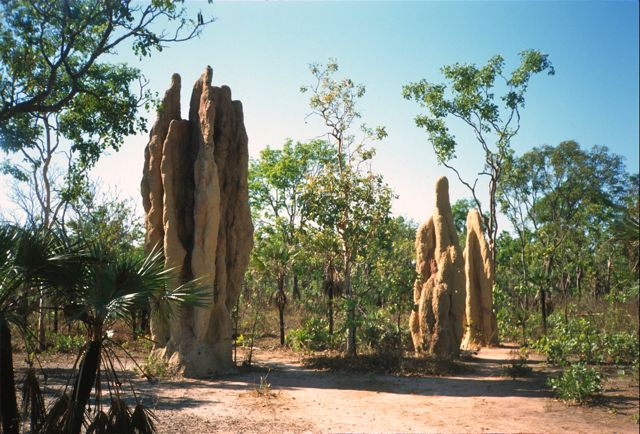 Termite nests
Termite nestsIn open areas, termite nests grow to become huge, impressive towers.
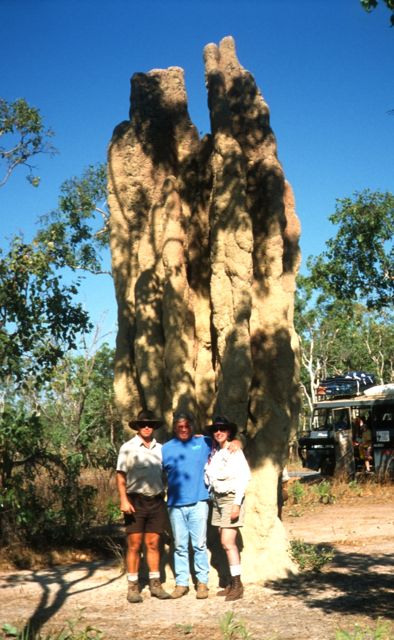
Our guide Steve, posed with us in front of a typical Australian termite nest in this area.
Kakadu National Park
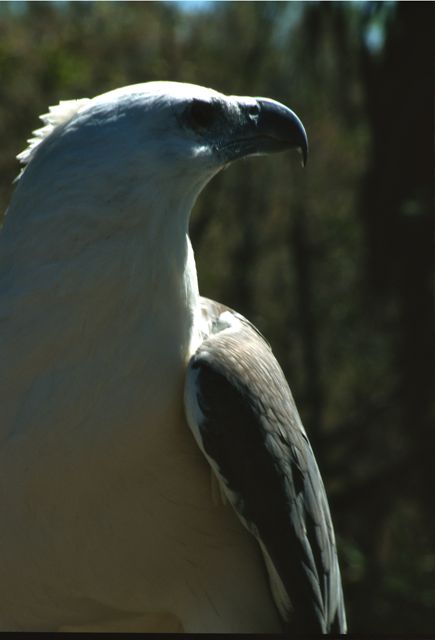 A White Sea Eagle
A White Sea EagleA highlight of camping in Kakadu National Park was a visit to a sanctuary for endangered White Sea Eagles.
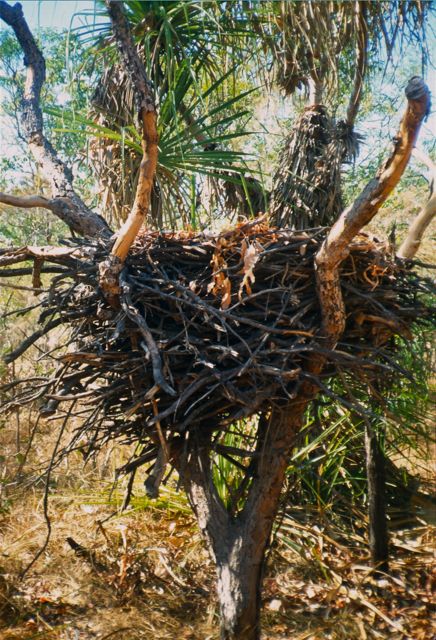 A White Sea Eagle nest in Kakadu.
A White Sea Eagle nest in Kakadu.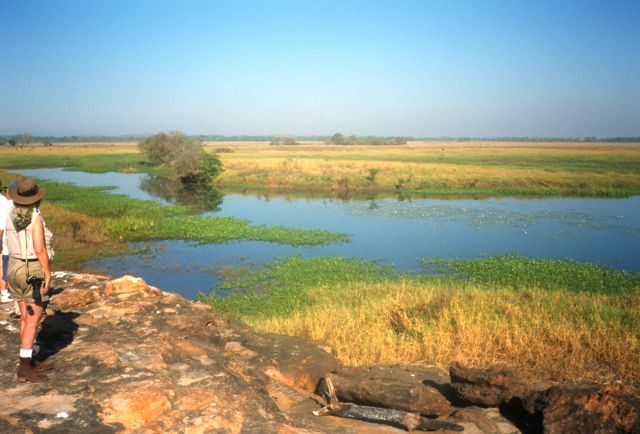
From the top of Ubirr is a stunning view of the wetlands and escarpment country below.
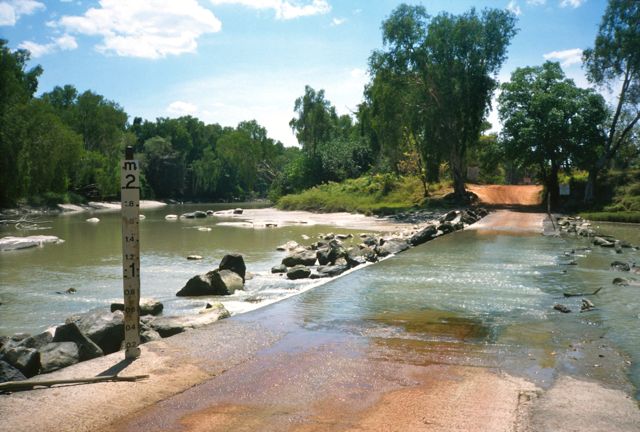
It’s common to see roads like this in Kakadu flooded at certain times of the year.
This can be dangerous for Aboriginal residents as crocodiles may be in even the shallowest water.
Monsoon rains alternately flood the plains, turning them green after the sun that scorches it dry. This area is actually called The Monsoon Forest.
Kakadu National Park
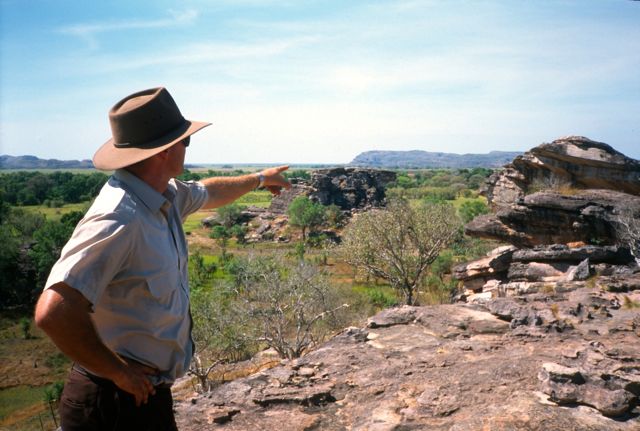 Arnhem Land
Arnhem LandThis part of Kakadu, called Arnhem Land, is entirely owned by Aboriginal people who maintain a strong indigenous culture here.
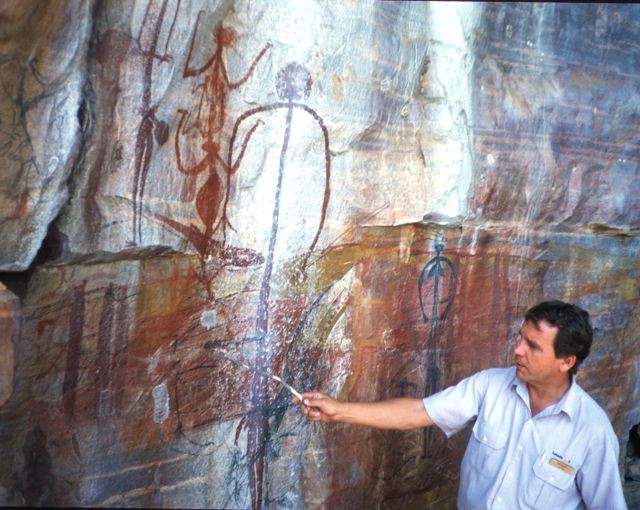 Aboriginal rock art
Aboriginal rock artSteve points to rock art dating back 50,000 years. Kakadu National Park has the highest concentration of Aboriginal rock art in Australia.
We hike around Ubirr to see these petroglyphs.
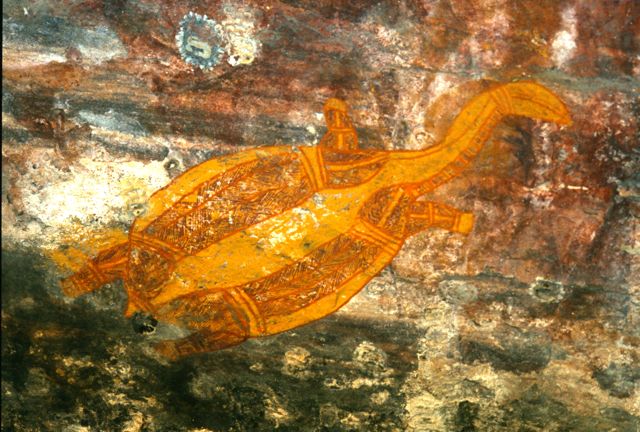
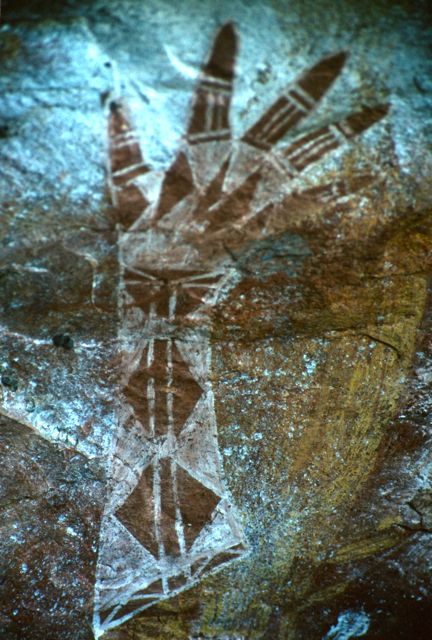
Lunch is served buffet-style from the side of “Huey” that
serves as Robyn’s kitchen.
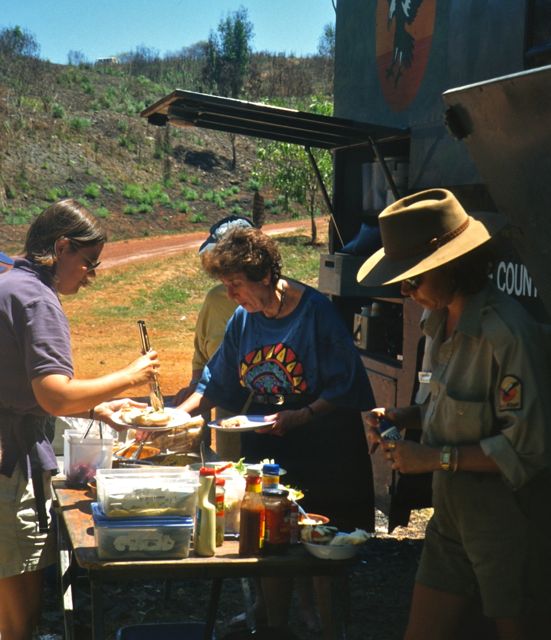 Lunch is served!
Lunch is served!Steven and Robyn make tea by the “Outbackl” method.
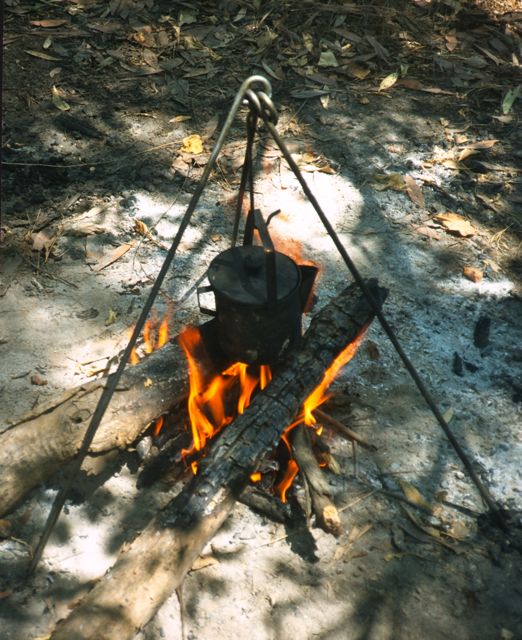 Making tea in a billy can
Making tea in a billy canI couldn’t resist photographing Steve’s knees as he drove. :)
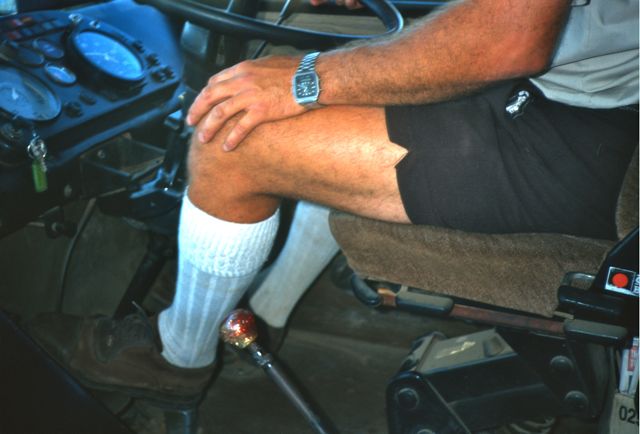 Steve's knees.
Steve's knees.Australia’s Kakadu National Forest is one of the world’s largest great conservation reserves.
Carolyn V.
Hamilton, Former Editor



